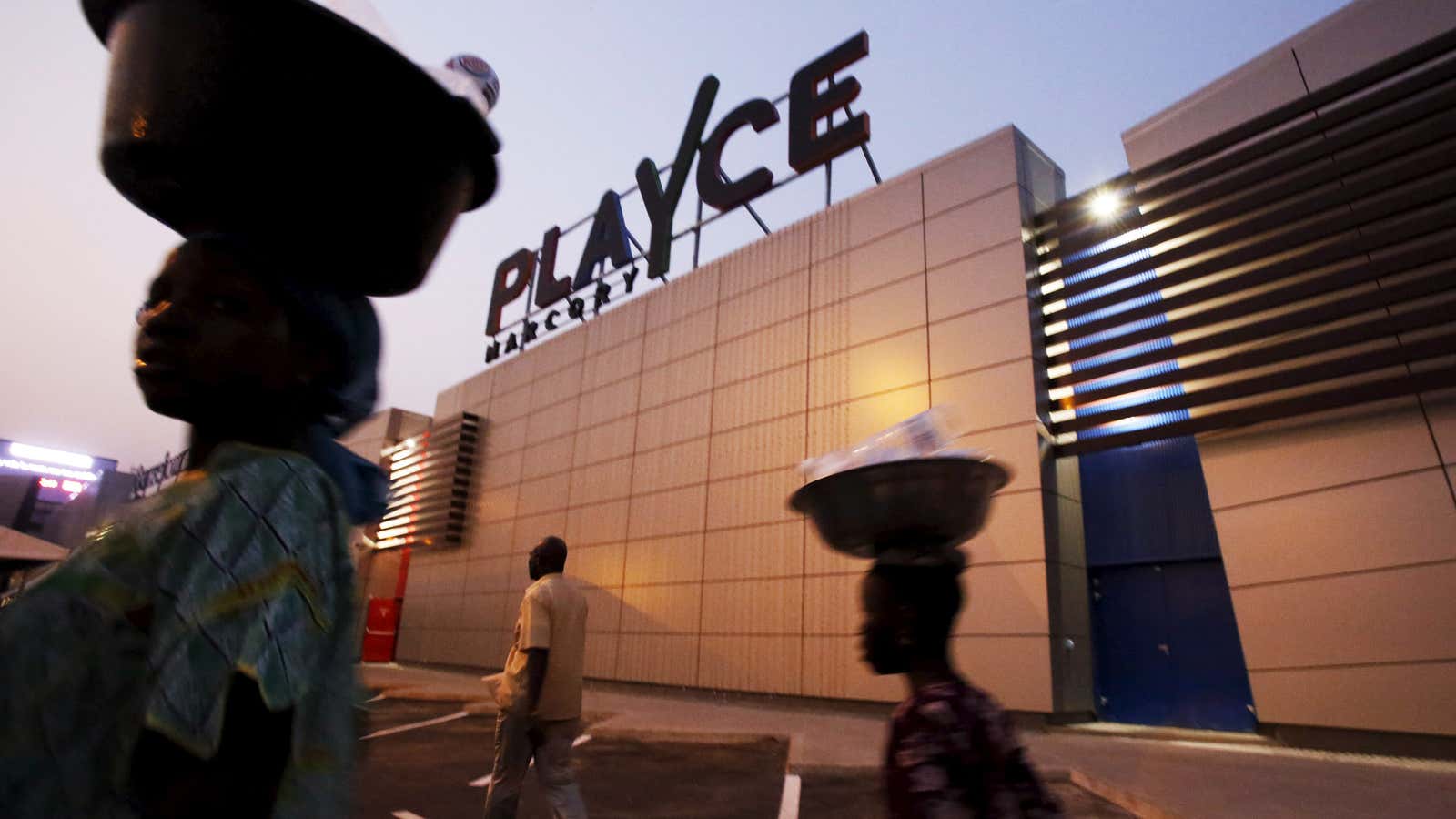Libya and Côte d’Ivoire are the two leading exemplars of the trajectory of African governance in the last decade, according to the 2016 Mo Ibrahim Index of African Governance (pdf). While Côte d’Ivoire has continued to prosper under its current president Alassane Ouattara, holding the top spot for the most improved country in the continent, Libya’s governmental infrastructure has dissolved, leaving behind a country controlled by a myriad of armed groups ensuring it has dropped to the bottom of the ranking this year.
Overall, governance in the continent has improved marginally in the past ten years in 37 out of 54 countries, accounting for 70% of the continent’s population. Côte d’Ivoire was followed by Togo and Zimbabwe on the top spots, while the Central African Republic, Eritrea, and Madagascar were along with Libya the most deteriorated countries on the continent.
The index measures overall governance trends in African countries based on four components: safety and rule of law, participation and human rights, sustainable economic opportunity, and human development.
The major hindrance of African governance has been a decline in safety and rule of law across the continent. In 2015, almost two-thirds of Africans lived in a country where safety was declining, a worrying trend that affects economic, political and social progress. Two-thirds of the countries on the continent, representing 67% of the African population, also showed deterioration in freedom of expression measures in the last decade.
The top five countries ranked for governance in 2015, Mauritius, Botswana, Cape Verde, Seychelles and Namibia all have small populations, totaling just over five million altogether.
The worst performers in overall governance in 2015 include oil exporters including Angola and Equatorial Guinea, who failed to diversify their economies. Or countries which have not changed their heads of state in the last decade like the Democratic Republic of Congo and Eritrea.
Nonetheless, Zimbabwe, a country that has the distinction of being led by the world’s oldest president, registered progress across all categories of the index over the last 10 years. Yet, by looking at the country’s year-specific progress, and especially 2015, Zimbabwe falls in the bottom half of the rankings, scoring low in accountability, national security and personal safety.
Jay Naidoo, a board member with the Mo Ibrahim Foundation, told Quartz that the prerequisite towards general improvement of all indicators is to first increase safety. “The potential progress we could have made is held back by widespread deterioration of safety and rule of law,” Naidoo said.
